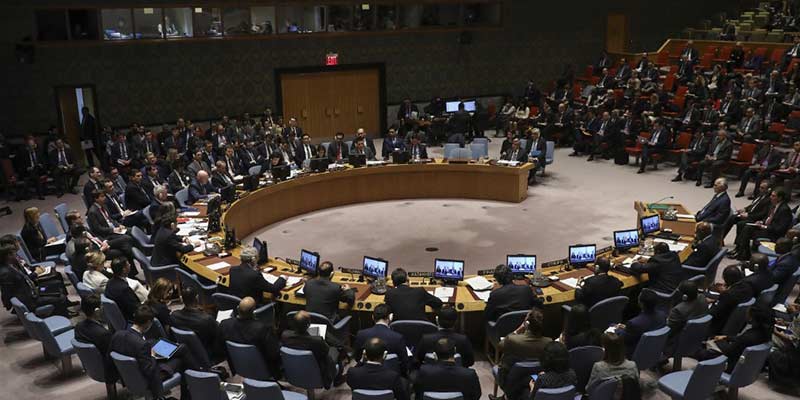- India
- Aug 13
Short Takes / UN Resolution 47
Pakistan Prime Minister Imran Khan has said that he will approach the United Nations to counter India’s decision to abrogate Article 370 and bifurcate Jammu & Kashmir.
The Pakistan foreign ministry said, “No unilateral step by the government of India can change the disputed status, as enshrined in the UN Security Council (UNSC) resolutions. Nor will this ever be acceptable to the people of Jammu & Kashmir and Pakistan. As the party to this international dispute, Pakistan will exercise all possible options to counter the illegal steps.”
A spokesman for UN Secretary General Antonio Guterres had declined to comment on claims that scrapping of J&K’s special status is in violation of the UNSC resolutions, reiterating only that the UN chief is following the developments in the region with concern.
“The Secretary-General has been following the situation in Jammu & Kashmir with concern and makes an appeal for maximum restraint,” said spokesman Stephane Dujarric.
He said the “position of the UN on this region is governed by the Charter of the UN and applicable Security Council resolutions”.
Earlier, Khan referred to Resolution 47 of the UNSC that focuses on the charge of the Indian government over Jammu & Kashmir dispute, that India took to the UNSC in January 1948.
What is Resolution 47?
In 1947, Maharaja Hari Singh, the ruler of Jammu & Kashmir, had decided to remain independent and sign standstill agreements with India and Pakistan. But, following an attack from Pakistan, he turned to India for help. India sought the accession of Kashmir to India. Hari Singh signed the Instrument of Accession (IoA) on October 26, 1947. It was approved the next day.
Following the war, India raised the issue at the UNSC.
A UN commission called for the withdrawal of both countries’ troops in August 1948. The UN brokered a ceasefire and a five-member commission made up of Argentina, Belgium, Columbia, Czechoslovakia and the US drew up a resolution calling for a referendum to decide Kashmir’s future.
“When the commission is satisfied that peaceful conditions have been restored in the state, the commission and the plebiscite administrator will determine, in consultation with the government of India, the final disposal of Indian and state armed forces, such disposal to be with due regard to the security of the state and the freedom of the plebiscite,” the resolution said.
According to an article in the website of Ministry of External Affairs (MEA), India was the first to suggest plebiscite as a peaceful method for resolving the dispute. “The offer was reaffirmed in 1948 and when the UN Commission suggested plebiscite, India accepted the proposal. In 1953, India reaffirmed its adherence to plebiscite as the best way of resolving the Kashmir problem in a joint communique issued by the Prime Ministers of India and Pakistan in New Delhi on August 20. And yet a plebiscite could not be held,” it said.
What happened to the plebiscite plan?
Later, India withdrew its offer of a plebiscite. India said as per UN conditions Pakistan had to first withdraw its forces from J&K, which it did not.
India also believed that the powers conferred on the Plebiscite Administrator undermined the state’s sovereignty.
Pakistan objected to the retention of Indian forces in Kashmir, even at the minimum level allowed by the resolution. It wanted an equal representation in the government of the state for the Muslim Conference, the dominant party of Pakistani-occupied Kashmir.
Despite their differences with the provisions of Resolution 47, both India and Pakistan welcomed the UN Commission and agreed to work with it.

